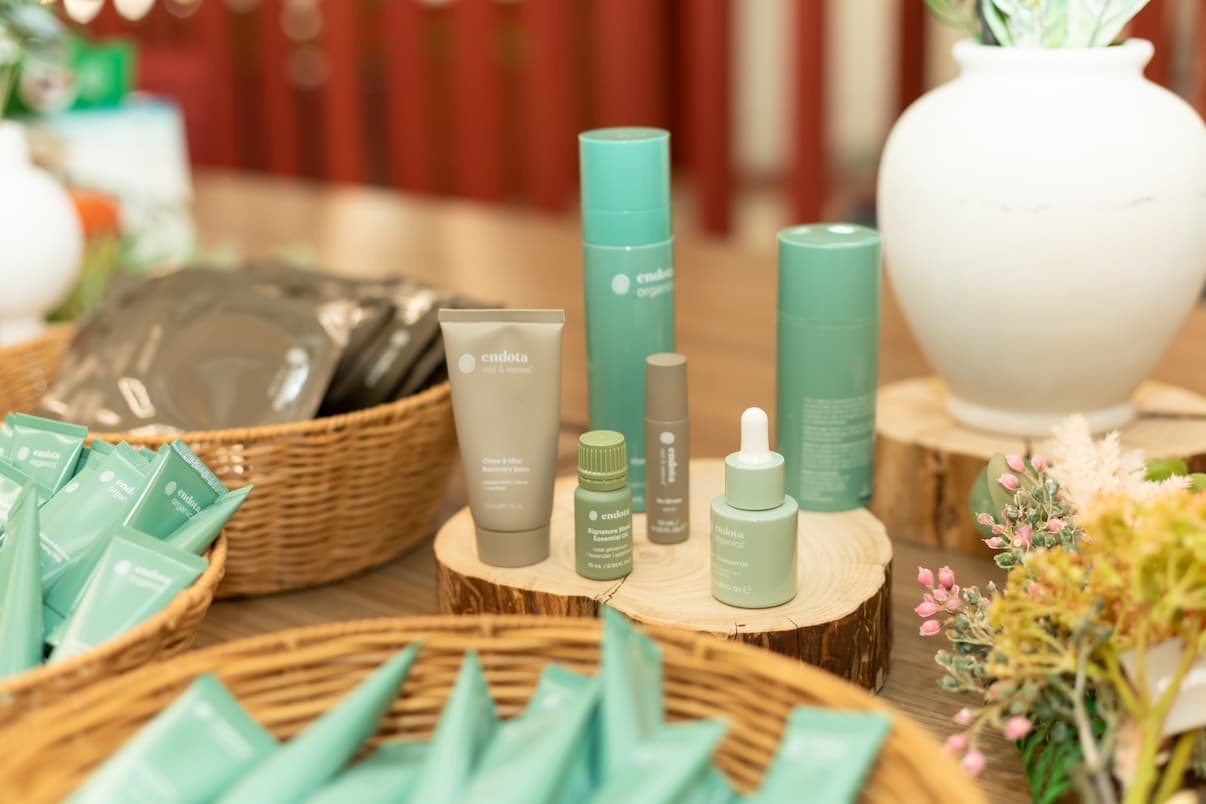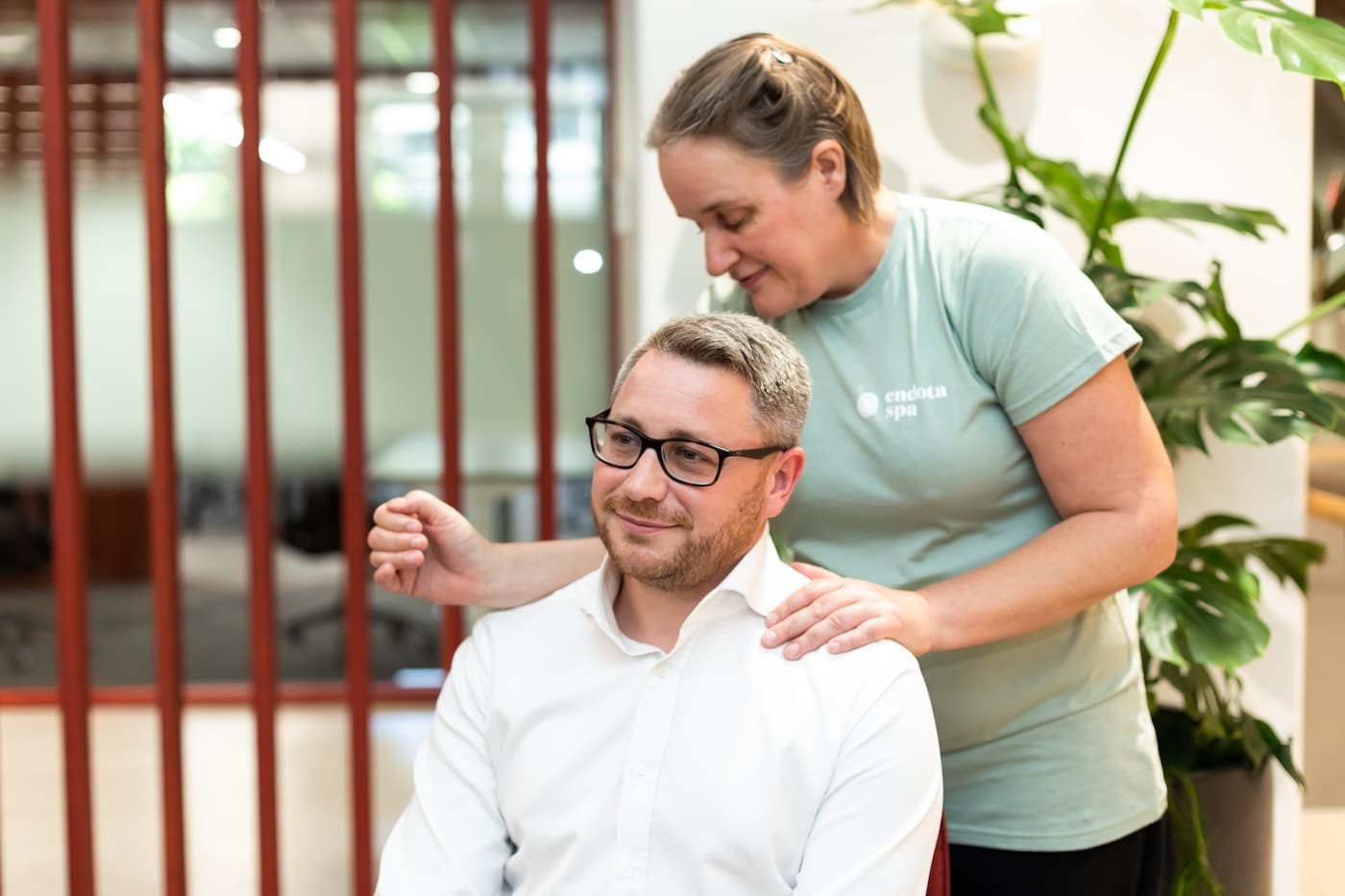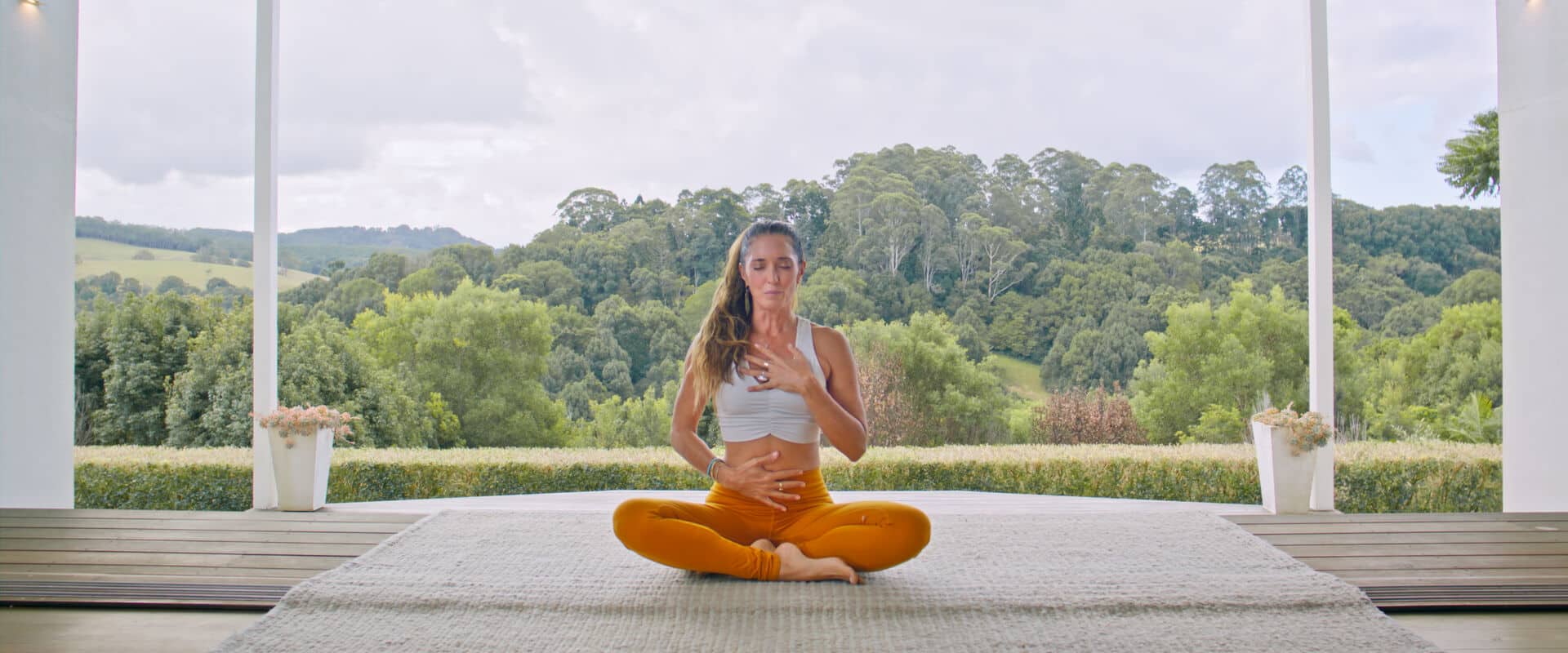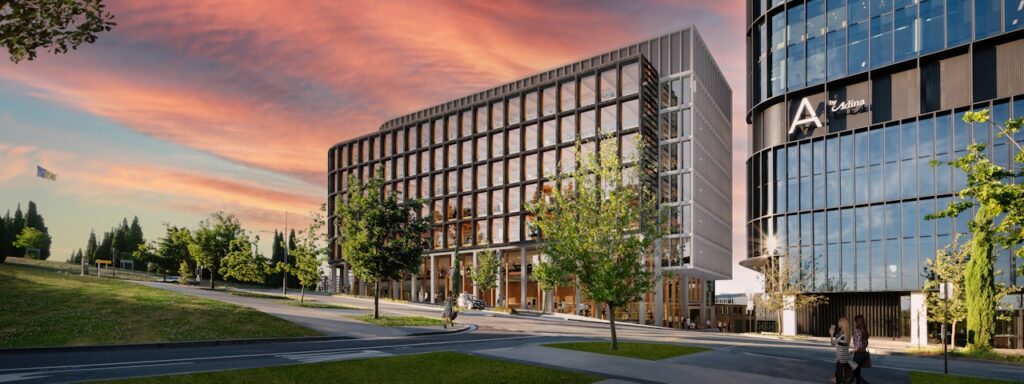It’s been several years since the onset of COVID, yet many of us are still dealing with the aftermath. And that includes burnout, fatigue – and an overall decline in mental health and wellbeing.
But amidst the darkness, there’s a glimmer of good, as workplaces begin to recognise the importance of employee wellbeing and are stepping up to do their part.
In this article, Christina Carnie, endota’s Corporate Partnerships and Wellbeing Manager, tells us how endota supports organisations in their workplace wellness journey. And how everyone needs to play their own part in ensuring wellbeing.
A silver lining from the pandemic
“We’re in the midst of a mental health and wellbeing crisis,” Christina states. “And there’s insurmountable evidence that supports this.”
She cites the 2023 Australian Unity Wellbeing Index as one example. The index is one of the most enduring and credible studies of wellbeing in Australia, tracking Australians’ personal wellbeing and national wellbeing for more than 20 years.
And this year, for the first time in the survey’s history, several wellbeing measures fell below the average range. In fact, the measure that asks people to rate how satisfied they are with their lives as a whole fell to its lowest level in 21 years.
“And that wasn’t the extent of the bad news,” Christina says. “The Personal Wellbeing Index scores, which measures our satisfaction across key domains of wellbeing, declined towards the bottom of the average range – reflecting a notable drop from relatively high scores in 2020.
“So the satisfaction of our health has declined. Satisfaction with life as a whole has declined. Our personal wellbeing overall has declined. And that’s really concerning.”
Yet, although there’s no doubt that the pandemic has plunged many into this state of burnout and fatigue, a silver lining has also emerged over the last couple of years. It’s paved the way for a stronger sense of understanding, and even a sort of camaraderie, when it comes to mental health.
Christina calls it a ‘wellbeing renaissance’.
“We’re definitely having more conversations now. Mental health has never been more spoken about and more accepted than it is today. And I feel as we evolve, in another ten years, it’s going to be even more so.
“So while it’s terrible that we’re in such a dark time, it’s actually a great opportunity. Because there’s so much research and data behind it, there’s no excuse for people to turn a blind eye to it anymore. You cannot not be awakened to it. You have to do something about it.”
And workplaces are definitely jumping on the bandwagon to do something about it.

Positive trends in workplace wellness
Although endota had only officially launched their Workplace Wellness program in early 2023, Christina tells us they’ve always been involved in that space in one way or another.
“From the time we started in 2000, we were connecting with corporates and organisations. But of course, wellbeing wasn’t a word back then,” she recalls. “Unlike today, where it’s been catapulted to the forefront.”
But how seriously are organisations taking employee wellbeing now?
“As far as I’m concerned, many companies are now recognising the importance of prioritising employee wellbeing and are taking steps to promote workplace wellness in some capacity,” Christina says.
“But every company is on a different journey. Some may already have well established wellness programs, while others may be in their infancy stage.”
When asked if there are trends in the wellness industry at the moment, she acknowledges a few notable ones. These include the employee assistance program, fitness programs, mental health support – and work-life balance initiatives such as work flexibility, which Christina describes as “revolutionary for parents”.
Besides that, financial wellbeing programs, health screenings, wellness assessments have also been massively implemented this year.
Christina lauds all these efforts, adding that, while many of these are expensive, companies cannot afford not to do them.
“There are huge costs associated with many of these, definitely. But there’s also huge costs associated with people being sick, depressed, stressed, anxious and burned out. So we need to delve into preventative action.”
Tailoring wellness to the workforce
An important thing for organisations to realise is that employee wellbeing is not a one-size-fits-all approach. They need to tailor their initiatives to address specific challenges their workforce may face.
Which is why endota has extended and diversified their workplace wellness offerings through their Workplace Wellbeing program.
“At endota, we have a specific focus on reframing mental health through the whole person approach. Every experience is aligned with our ‘nourishing and nurturing you’ principle, so it helps employees feel refreshed, rejuvenated, and more balanced,” Christina explains.
Under their Workplace Wellness program, corporates can start with the basic tier, which includes staff discounts for endota products and treatments. There’s also their corporate bulk gift vouchers and product offerings, which works well in a staff gifting or rewards system.
The endota retreat platform, launched during the pandemic, is an omni channel wellbeing program with holistic content that people can access in their own time, anywhere. And companies can purchase memberships to the platform for their staff as part of their workplace wellness initiative.
Prefer something in person? endota also has the capability to send massage therapists on site to execute massages. Or, companies have the opportunity to send their team to endota’s wellness college in Melbourne – and in Queensland and Sydney next year – for group facials, head massages, and more.
On top of that, endota can also run workshops and seminars that cover physical, mental, spiritual, and corporate wellbeing. Some examples include breath work, meditation, nutritional cooking classes, parent wellbeing workshops, art therapy, cacao ceremonies, a full-day retreat at the endota spa at Balgownie Estate – the list goes on.
“We have so many different touch points,” Christina says. “There’s something for everyone in every capacity, so we can really customise our program based on the needs of each company and the wellbeing stage that they’re in.”
And there’s no pressure to get everything right at once; you can always start small.
Christina explains that they would meet with the company to find out what they’re after and what their strategy is over the next 6 to 12 months. Then they’ll help them tailor a wellness program according to what they’re ready for.
“There’s something for everyone in every capacity, depending on where they’re at on their journey and where they want to be. And also whether their workforce is online or offsite.
“It’s really about coming up with bespoke strategies that suit that particular organisation, big or small. Whether it’s to start with gift vouchers and discounts then gradually incorporating more – or just staying with the discount codes. That’s fine as well.”

Good progress, but more to be done
Looking ahead, Christina expects workplace wellness to continue evolving, with a focus on thinking outside the box. It’s about going beyond the basics, considering what works best for each workforce – and focusing on prevention rather than just reactive measures.
She also acknowledges the challenges of balancing remote work arrangements with maintaining employee wellbeing initiatives. Because when you’re at home, your workplace cannot guarantee that you are prioritising work-life balance or eating right or avoiding prolonged sitting, for example.
Which is why, when it comes to employee wellbeing, Christina stresses that both sides need to be accountable: employers and employees.
“As much as workplaces need to uphold wellbeing initiatives, I’m a big advocate for self accountability too,” she reiterates. “And sometimes, even just shifting a slight element within your own mindset can set you on a completely new trajectory.
“So, workplaces need to facilitate more workshops. And provide employees with more information about preventative measures and how to take better care of themselves. But the accountability and willingness to do them need to come from the individual as well.”
She adds that workplace wellbeing needs to shift into that next level of humanistic approach. For example, if someone is calling in sick quite frequently, they need to find out what’s going on in that person’s life, how they as employers can better help them – and how to empower the individual to take charge of their own health too.
“So I think there’s still a lot of work to be done, but we’re heading in the right direction,” she concludes. “Because there’s so much focus in this space – which is great. It’s now just about navigating the paths.”
At Hub, workplace wellness has always been our focus. And we partner with endota to enhance our members’ wellness experience across our locations – be it through our WorkWell events, curated skincare products, or relax rooms.
It’s a partnership we’re proud of, and we’re glad Christina feels the same.
“We’re so fortunate to have a partner like Hub. When people feel overwhelmed or stressed, what the body actually needs to do is switch off. Even if it’s just for five minutes or three minutes. For Hub to have made that relax space available, you’ve given people a place to go when they’re at work to calm their nervous system down and re-nourish and nurture themselves.
“Same thing with your parents rooms. It’s a massive thing for mothers to have a place to go when they come back to work – a calming place for their body, a safe space where they can relax while breastfeeding. For Hub to have already thought of that and to implement that across all locations is huge.
“You’re absolutely at the forefront of where workplace wellbeing needs to be.”
– Christina Carnie, Corporate Partnerships and Wellbeing Manager, endota
At Hub, we unreservedly champion workplace wellbeing for both our team and our members. Read more about our workplace wellness initiatives.
Or, book a tour at any of our locations to see how we facilitate a wellness-focused experience for all Hub members.






